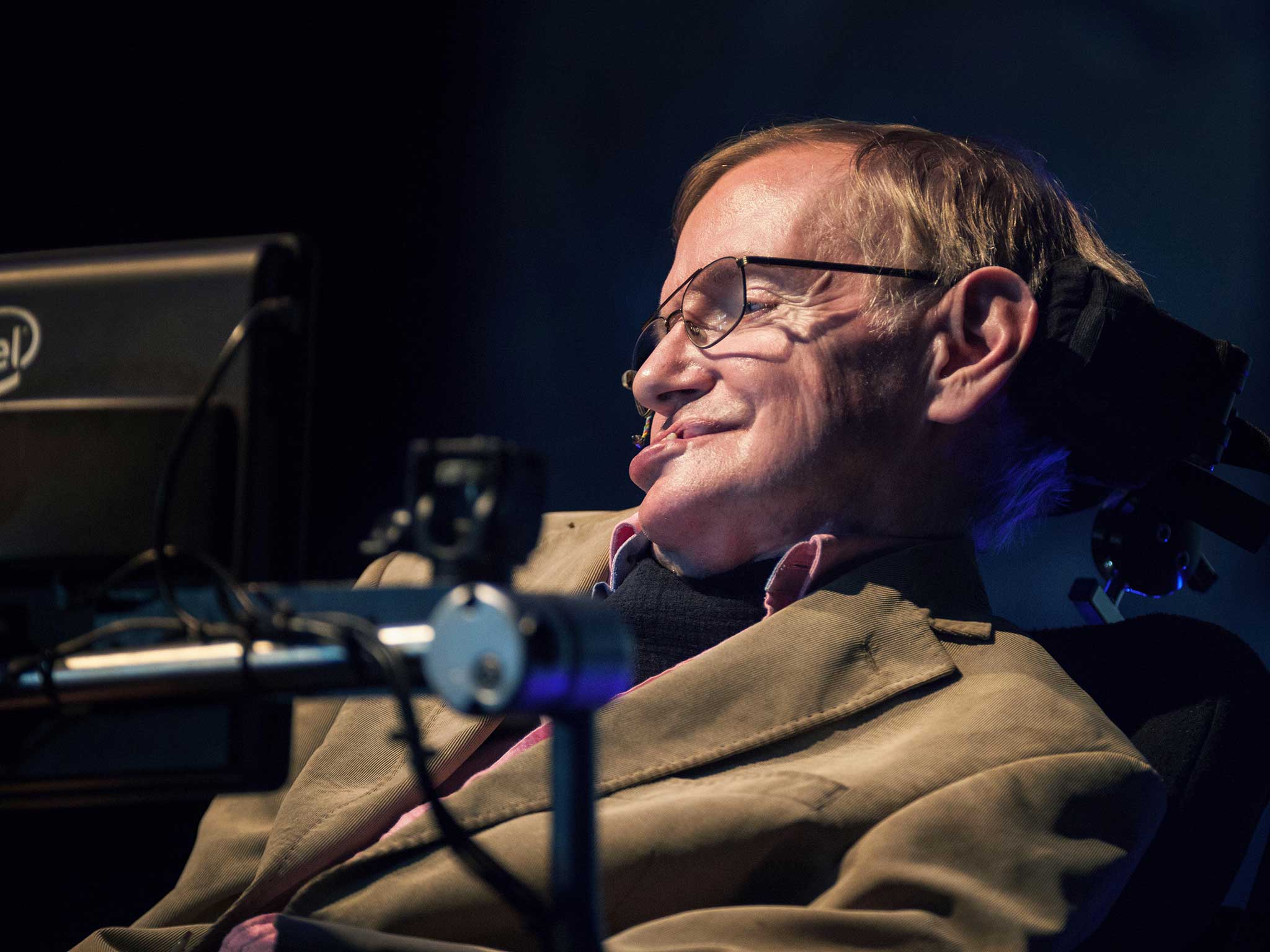Black holes are a passage to another universe, says Stephen Hawking
New theory is an answer to a paradox that has puzzled physicists for decades

Humans could escape from black holes, rather than getting stuck in them, according to a new theory proposed by Stephen Hawking.
Unfortunate space travellers won’t be able to return to their own universe, according to Hawking. But they will be able to escape somewhere else, he has proposed at a conference in Stockholm.
Black holes in fact aren’t as “black” as people thought and could be a way of getting through to an alternative universe.
“The existence of alternative histories with black holes suggests this might be possible,” Hawking said, according to a report from Stockholm University. “The hole would need to be large and if it was rotating it might have a passage to another universe. But you couldn’t come back to our universe. So although I’m keen on space flight, I’m not going to try that.
Hawking’s proposal is an attempt to answer a problem that has tormented physicists about what happens to things when they go beyond the event horizon, where even light can’t get back. The information about the object has to be preserved, scientists believe, even if the thing itself is swallowed up — and that paradox has puzzled scientists for decades.
Now Hawking has proposed that the information is stored on the boundary, at the event horizon. That means that it never makes its way into the black hole, and so never needs to make its way out again either.
That would also mean that humans might not disappear if they fall into one. They'd either stay as a "hologram" on the edge, or fall out somewhere else.
“If you feel you are in a black hole, don’t give up,” he told the audience at the end of his speech. “There’s a way out.”
Join our commenting forum
Join thought-provoking conversations, follow other Independent readers and see their replies
Comments
Bookmark popover
Removed from bookmarks